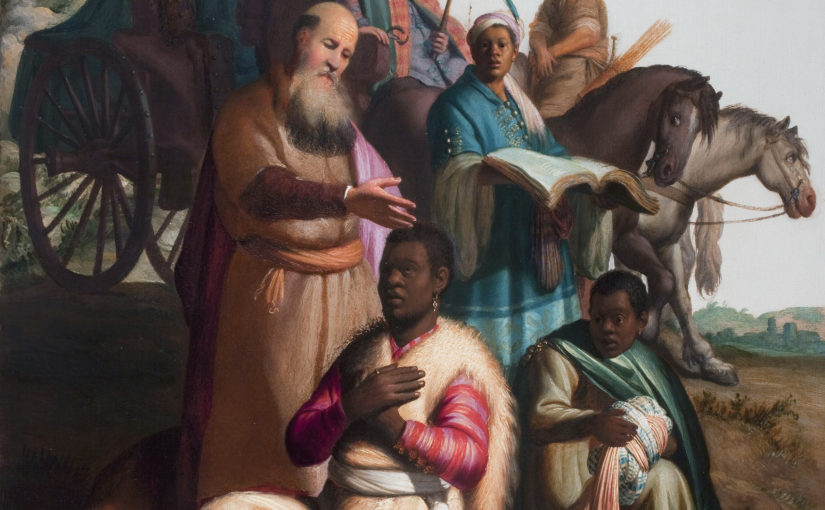Some believe there is a reason that in this account of the first great missionary move of the church there is both the presence of a false convert and a true believer. Perhaps one of the lessons here is that this is a reality of ministry. (Matthew 13:24-30)
Philip went down to the city of Samaria and preached Christ unto them. (Acts 8:5) After hearing and seeing the miracles, Simon, the Sorcerer, having in the same city proclaimed to be great and having been given heed as the same, believed and was baptized proclaiming Christ. (Acts 8:9-13) Simon the Sorcerer, after witnessing a new miracle, the laying on of hands by the apostles that the believers might receive the Holy Spirit, desired this power for himself and offered to pay the disciples to procure it. (Acts 8:18-19) The Apostles exposed him as false and rebuked him. (Acts 8:20-23)
Here we see the intention of Simon’s heart. Apparently he was not interested in God because solely because he loved God in the true sense of the word, that is; loving someone for what you can do for them, but instead, for a selfish, lustful desire, that is; “loving someone” for what they can do for you. He seemingly was not interested in God except that he might procure the power of God. Except that he might then use this power for himself and sow to the flesh more and more. (Galatians 6:7-8) In this case, Simon the Sorcerer seemed interested in the power of God to fuel his prideful quest of being great among the people. It was found out that is was really all about him and not God.
Perhaps some good questions to reflect on and return to:
- Do we love God for what we can do for Him (serve Him) or are we more interested in what He can do for us? Are we more interested in God or His stuff (blessing, etc.)? In your heart (your deepest and most subtle desires); Are you for God or is God for you? ‘For’ here being in the useful sense of the word.
- Do we love others for what we can do for them or what they can do for us?
Painting: Rembrandt, The Baptism of the Eunuch, 1626
